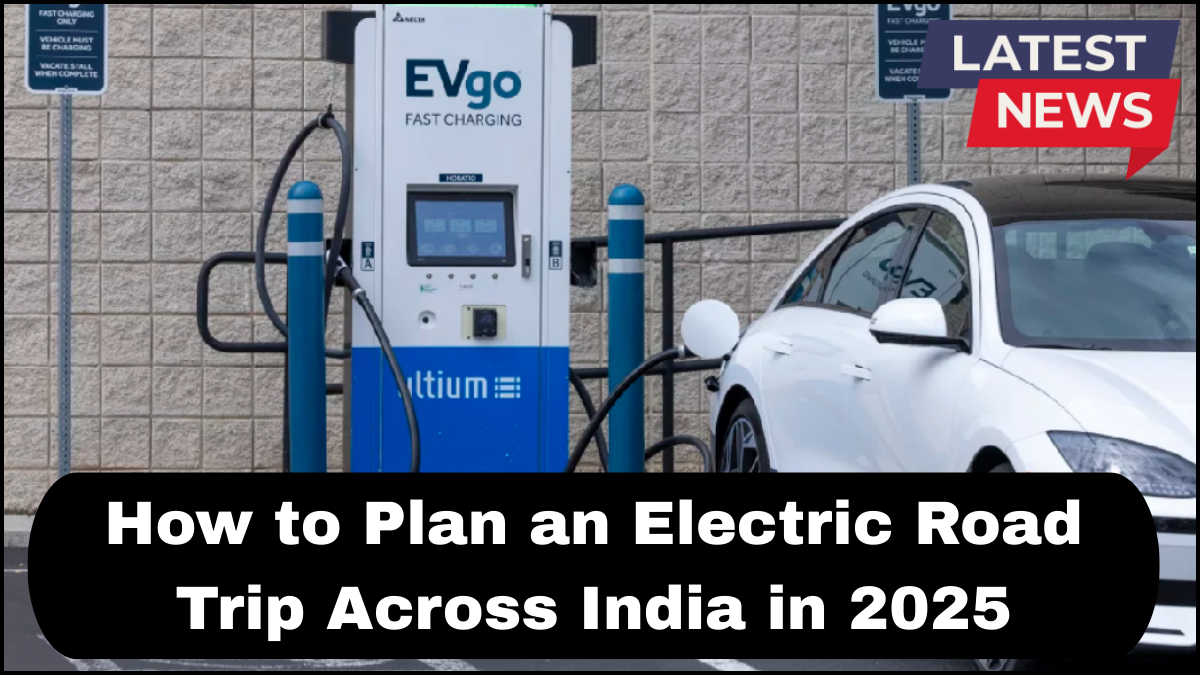Electric vehicles (EVs) are no longer a futuristic concept—they’re now a practical and exciting way to explore India. With a growing charging infrastructure, more electric car rental options, and better battery ranges, an EV road trip across India in 2025 is not only feasible but also eco-conscious and cost-effective. Here’s your complete travel guide to planning an unforgettable electric road trip in India.

1. Choose the Right Electric Vehicle for Your Route
The first and most important step is selecting a suitable EV. Whether you’re renting or using your own, make sure the car offers:
-
A real-world range of at least 300–500 km per charge
-
Fast-charging support (DC charging)
-
A well-connected service network
-
Ample boot space and comfort for long-distance travel
Popular electric cars in India for 2025 road trips include the Tata Nexon EV, MG ZS EV, and Hyundai Ioniq 5. If you don’t own one, several electric car rental services now offer flexible plans and nationwide availability.
2. Map Out Charging Stations in Advance
A successful EV road trip in India depends on careful planning around charging infrastructure. Use apps like Tata Power EZ Charge, Statiq, ChargeZone, or PlugShare to locate public chargers along your route.
Tips:
-
Plan to charge before you dip below 20% battery.
-
Favor routes with DC fast chargers every 150–200 km.
-
Note the operational hours and connector types (CCS2, Type 2, etc.) of each station.
For example, the Golden Quadrilateral (Delhi–Mumbai–Chennai–Kolkata–Delhi) now has multiple charging points, making it a practical circuit for EVs in 2025.
3. Plan Realistic Daily Driving Distances
Overestimating your driving range is one of the most common mistakes. Even with fast chargers, recharging can take 45 minutes to 1.5 hours. A daily target of 250–400 km is ideal, allowing time for breaks and sightseeing.
Bonus Tip:
Incorporate charging stops into meal breaks or overnight stays. Many EV-friendly hotels now offer on-site chargers.
4. Budget for Charging and Unexpected Delays
Although EVs are cheaper to run than petrol vehicles, you should still plan your budget realistically.
Charging Costs (approx.):
-
AC Charging: ₹8–₹15/unit
-
DC Fast Charging: ₹18–₹25/unit
Also, factor in:
-
Tolls
-
Parking (some locations charge for EVs despite being eco-friendly)
-
Extra nights in case of charger unavailability or detours
5. Understand the Terrain and Weather Impacts
India’s geography is diverse—plains, hills, coastlines, and deserts. These all impact EV performance.
-
Hilly areas (like Himachal or Uttarakhand) can reduce battery range by up to 25%.
-
Hot climates increase air conditioning usage, affecting efficiency.
-
Monsoon travel may cause delays or affect access to rural chargers.
Stay updated with local road and weather conditions and always have a Plan B.
6. Use a Travel Guide App Tailored to EVs
Regular travel guide apps often miss crucial EV info. Look for platforms that support electric vehicle route planning, charging points, and eco-tourism spots. Some services now include curated EV travel itineraries, accommodation partnerships, and road condition alerts.
7. Rent Instead of Buying for One-Time Trips
If you’re testing the waters before buying an EV or just want the experience without ownership costs, electric car rental services are perfect.
Some popular EV rental providers in India:
-
BluSmart
-
Zoomcar EV Fleet
-
Revv (with EV options in select cities)
Make sure to check:
-
Charging flexibility
-
Daily kilometre limits
-
Roadside assistance coverage
8. Be Prepared for Emergencies
Carry an EV emergency toolkit:
-
Portable Type-2 to 15A charger
-
Extension cord
-
Power bank for phones and devices
-
Contact numbers for roadside assistance and nearby EV service centers
Also, consider having an offline map and backup route downloaded on your phone.
Final Thoughts
Planning an EV road trip across India in 2025 is no longer a logistical nightmare. With growing infrastructure, smarter planning tools, and better vehicles, electric travel is fast becoming the smarter choice. Whether you’re exploring the beaches of Goa, the Himalayas, or the backwaters of Kerala, going electric ensures your journey is clean, quiet, and sustainable.
FAQs
Is it possible to drive an EV across India in 2025?
Yes. With significant expansion in the public charging network and long-range EVs, cross-country trips are very doable with proper planning.
Are electric car rentals easily available in India?
Yes. Cities like Delhi, Bangalore, Mumbai, and Hyderabad offer electric car rental services through platforms like BluSmart, Zoomcar, and Revv.
How long does it take to charge an EV on the road?
DC fast chargers typically take 45–90 minutes for an 80% charge, depending on the car’s battery capacity and charger output.
What are the risks of an EV road trip in India?
Risks include charger inaccessibility, long wait times at stations, reduced range in extreme terrain or weather, and limited support in remote areas. However, with smart planning, these can be minimized.
Can I take an EV to remote areas or the mountains?
Yes, but with caution. Plan your route carefully, carry backup charging gear, and ensure there are charging options nearby or at your destination.
click here to learn more